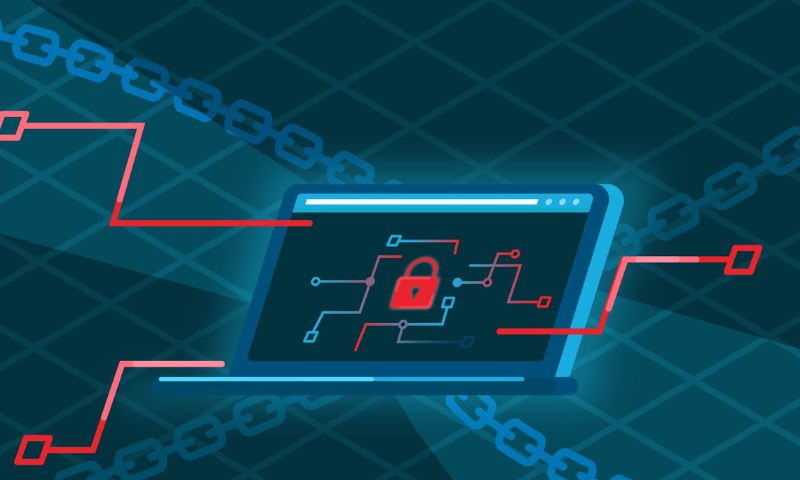Cost of Blockchain Security Audits: Are you investing enough? Yes, the price tag for securing your digital ledger can be steep. But hobble on security, and the fallout could cripple your venture. Imagine it’s not just about coins and codes, it’s your reputation on the line. You stand at a crossroads. Cut corners and risk a hack, or shell out for a full audit to cement your platform’s trustworthiness? Let’s crack the code of audit costs together and weigh every dollar against the safety it buys. To not just survive but thrive in the blockchain arena, your financial commitment to security must measure up. Let’s explore how deep your pockets need to be.
Understanding Blockchain Security Audit Pricing
Breakdown of Blockchain Audit Fees
Factors Influencing Cost
Let’s talk about the money side of keeping blockchain safe. When looking at blockchain security audit pricing, several things affect the final cost. It’s more than just checking for weak spots. Experts must spend hours, sometimes days, to make sure everything in your blockchain is rock-solid. This work keeps hackers away and your digital cash safe.
One big chunk of the price comes from how complex your blockchain is. More lines of code mean more time to check each one. And if your tech is super new or unique, get ready to pay more. Things like the size of your contract, the technology you use, and how fast you need results also change the price.
But here’s where it gets interesting: The team you pick for the job matters a lot. Seasoned pros with a solid track record will cost more than new folks on the block. Just remember, though, you usually get what you pay for. Pick the right team, and it’s like a strong lock on a bank vault.
Comparing Smart Contract Audit Expenses
Now, let’s look at smart contract audit expenses. These are special pieces of a blockchain that act like self-run programs. They follow set rules to trade, invest, and do other stuff with your crypto coins.
A smart contract audit could save you from big losses. Think of it as a fine-tooth comb going through your contracts to catch any bugs or leaks. Different auditors have different price tags. It depends on how much work is needed for your specific smart contract.
For a small project, you might pay a couple of thousand dollars. For larger or more complex ones? The cost could hit tens of thousands. But don’t let that scare you. Cutting corners on safety can haunt you later. It’s like buying cheap locks for your doors and hoping no one tries to break in.
Compare the costs and the reputations of auditors. Reach out to a few and get their quotes. Make sure they can explain their process and what you’re paying for. And always, always look at what others say about them.
In the world of crypto, it pays to be safe rather than sorry. Investing enough in a blockchain security audit means you’re less likely to wake up to bad news. Sure, it’s about money, but it’s also about peace of mind. That’s priceless.
Assessing Your Investment in Blockchain Validation
Importance of Financial Auditing Distributed Ledgers
Money spent on auditing your blockchain is crucial. It’s like a health check for your crypto’s security. Think of it as insurance for your digital wealth. You lock your car, right? Same thing here. Audits protect your blockchain from hacks that could rob you. Now, is your investment big enough? This is not just for peace of mind. It affects your image too. People trust safe blockchains more.
Evaluating audit costs is vital. Knowing the fair price for security can be tough. Do it right, and it won’t break the bank. However, skimp on audits, and it might cost you more later. So, what’s the magic number? Costs vary due to scope, technology, and the auditor’s expertise. Simple code checks cost less. Full audits on complex systems cost more.
Let’s dive deeper into quotations. Quotations give you a price tag for the audit job. Always ask for details on what they cover. What if the quote is super high or suspiciously low? That’s when you must ask more questions. What’s included? How experienced are the auditors? Don’t just settle. Find the right fit for your blockchain’s needs and your wallet.
Funding Blockchain Security Measures
Money spent on security measures is never wasted. But how much should you put aside? You must think about the value your blockchain holds. More value might mean more risk. So, more security is needed.
Figure out all that could go wrong. What hacks could hit your platform? How hard would they hit? Then, decide how much security you can afford. There is no one-size-fits-all cost. Each blockchain has unique needs. Secure smart contracts, for example, can be pricey. But they’re often worth it. They’re like putting a strong lock on your data’s door.
What if the funds are tight? That’s when you get smart with your security budget. Maybe start with the most vital parts of your blockchain. Gradually cover everything as funds allow.
Blockchain startups, listen up! Don’t cut corners on security audits. It’s tempting to save money early on. But in the long run, those savings might cost you everything. Budget for audits as you would for any other critical business need.
Money talk can be dry, I get that. But this is about keeping your crypto safe and trusty. Brush up on what it costs to lock down your blockchain. Be smart. Plan well. Spend wisely. And sleep better knowing you’ve invested right in your blockchain’s health
Balancing Cost with Security in Blockchain Platforms
Crafting a Cost-Effective Blockchain Security Financial Plan
Affordable Blockchain Analysis vs. Comprehensive Auditing
You want to keep your blockchain safe. You also don’t want to spend too much. How do you find the middle ground? You balance your needs with the right audit. Security audit cost factors? They include the audit’s depth, size of your project, and code complexity. Small blockchain projects may only need quick checks. Yet, big systems might need deep, costly audits.
If you pick just low-cost audits, you risk missing big flaws. This can hurt your project. High-quality audits cost more, but they do more. They find and fix more threats. They can even boost your system’s worth. Think of smart contract audit expenses as money well spent for your project’s future.
Return on Investment (ROI) of Rigorous Blockchain Audits
When you pay for a thorough audit, what do you get back? A lot, actually. First, peace of mind. You know your blockchain does its job well and safe. If your system is financial, this trust can attract users. More users, more gains.
But there’s more. Your choices now can shape your costs later. The right Blockchain Technology audit pricing up front can mean fewer fixes down the line. With cryptocurrency code audit prices rising, paying for quality now might save you later.
Blockchain audit value proposition isn’t just about finding flaws. It’s about setting up for success. And that means betting on solid audits with good ROI. If your smart contract works right, that alone can be your ROI. A failed one can cost you much more than your initial investment.
To sum up, balancing your budget with a strong security net is key. It’s not just about finding an affordable blockchain analysis. It’s also about funding blockchain security measures that protect and serve your project for a long time. Avoid undervaluing security to cut costs. It can lead to more spending when things go wrong. Instead, plan. Think about the blockchain security financial planning you need. Make sure it fits your goals and budget.
So, are you investing enough in blockchain security audits? It’s not about how much you spend, but how well you spend it. Look at your blockchain validation cost. Compare it to what you could lose without good audits. Then decide. Make smart choices now, for a safer, more effective blockchain tomorrow.
Staying Compliant and Secure within Your Budget
Navigating the Costs and Benefits of Secure Blockchain Systems
- Blockchain Compliance Audit Expenses
Do blockchain audits break the bank? What are the costs and benefits?
Blockchain audits are a must for any business in the crypto space. A good audit can reveal the hidden risks and flaws in a system. But some people worry: Do they cost too much? The truth is, it all depends.
The price of a security audit can change a lot. It can range from a few thousand to even hundreds of thousands of dollars. But why such a wide range? Many things decide the final price. These include how complex your blockchain is, how much value it holds, and what kind of audit you need.
Let’s dive deeper.
- Aligning Ledger Technology Auditing Costs with Business Goals
Why does your business need a blockchain audit? Good question!
Here’s the simple answer: to stay safe and follow rules. A solid audit checks if your blockchain follows all legal and security standards. It also makes sure that your smart contracts do what they’re supposed to do.
Getting an audit might seem pricey at first. Yet, think about the risks if you don’t. Hacks and legal troubles can cost much, much more than an audit. A good audit can stop big problems before they start. It’s like buying a sturdy lock for your doors. It’s better to be safe than sorry.
And here’s the deal. You don’t always need the most expensive audit out there. What’s best is one that fits your business goals and budget. Say you’re a startup with a DeFi project. You might be fine with a more basic audit for now. As you grow and take on more risk, you’ll up your game with a deeper audit.
Talking about goals, think long-term. Investing in a good audit today can save you from losses tomorrow. It can also show investors and customers that they can trust you. That trust is golden and can lead to more business and growth.
So, how do you pick the right audit without wasting money? Start with knowing your needs. Is your blockchain at high risk? Is it complex? These will up your costs for sure.
Next up, shop around. Get quotes from different auditors. Ask for details on what they’ll check and how deep they’ll dig. A cheap audit that misses important checks is no good. But paying for more than you need isn’t smart either.
Remember, the price you’re quoted should feel right for your size, risk, and needs. Don’t just look at the dollar amount. Look at the value the audit will bring. This is where the word “investment” matters. You’re not just spending money. You’re securing your business’s future.
To wrap it up, audits are a key part of doing business in crypto. Yes, they come with a price. But they bring much more in terms of security and trust. Get the audit that fits your needs and goals. That way, you’re always getting your money’s worth.
In closing, we’ve walked through the various costs tied to blockchain security audits. We explored what drives audit fees and compared expenses for smart contract checks. Recognizing that your financial input ensures ledger safety, we discussed how to gauge audit quotes and put funds into guarding your blockchain setup. It’s clear that while keeping an eye on costs, investing in solid blockchain security pays off.
Smart budgeting for blockchain defenses doesn’t mean settling for less. We can craft a plan that balances affordability with thorough analysis, so our investments truly count. Lastly, we touched on how to stay in line with regulations without blowing our budgets. By syncing up audit costs with our business aims, we make sure every dollar spent on blockchain audits adds real value. Not only does this approach keep your platform secure, but it also aligns with financial smartness, keeping the ledger tech cost-effective. Now go ahead, secure your blockchain systems wisely!
Q&A :
What factors influence the price of a Blockchain Security Audit?
Blockchain security audits can vary significantly in price due to a number of factors. The complexity of the smart contract code, the size of the project, the reputation and expertise of the auditing firm, and the level of thoroughness required can all impact the cost. Smaller projects with simple contracts may pay less, while larger projects with complex systems could see higher audit fees. It’s imperative to consider the experience level of auditors as well, as their expertise may warrant higher rates but also provide added value in terms of security assurance.
How frequently should Blockchain Security Audits be conducted?
The frequency of blockchain security audits should correspond to the project’s development cycle and the level of activity on its network. Ideally, an initial audit should take place before launching the project, followed by periodic audits as the codebase evolves or in response to significant updates or the discovery of new vulnerabilities within the blockchain space. It is prudent to schedule an audit after any major changes to the code to maintain security integrity.
Are there different types of Blockchain Security Audits?
Yes, there are various types of blockchain security audits, each focusing on different security aspects. Some audits are comprehensive and examine everything from the code to the architecture and potential vulnerabilities. Others may specifically target smart contracts, on-chain and off-chain transactions, or the consensus algorithm. Additionally, penetration testing and code review can be considered specialized forms of security audits within the blockchain ecosystem.
Can the cost of a Blockchain Security Audit be reduced in any way?
The cost of a blockchain security audit can be reduced by ensuring that the code is as clean and organized as possible before submitting it for an audit. Simplifying code, removing redundancies, and thoroughly documenting can minimize the time auditors need to understand and evaluate the codebase, potentially lowering costs. Additionally, some audit firms may offer discounts for startups or projects with open-source code, or during off-peak periods.
What can be the repercussions of skipping a Blockchain Security Audit?
Skipping a blockchain security audit can have dire consequences, including but not limited to financial loss due to hacks or theft, damage to the project’s reputation, and a potential complete collapse of the project if the underlying security flaws are severe. Additionally, it may lead to legal repercussions if users’ assets are compromised due to negligence in security. It’s crucial to weigh the cost of a security audit against the potential risks and costs of a security breach.


